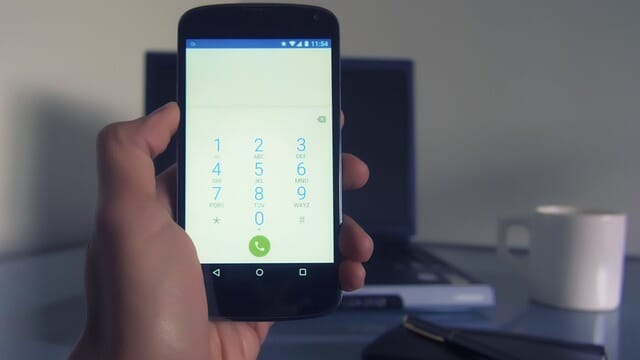
Who Called Me? Using Phone Searches to Identify Unknown Numbers
It was a typical Tuesday morning when my phone rang. I glanced at the screen, and my heart sank. The number was unfamiliar, a combination of digits that meant nothing to me. My first instinct was to ignore it, but curiosity got the better of me. Who could be calling from an unknown number? After a moment's hesitation, I decided to answer the call. To my surprise, it was an old friend I hadn’t spoken to in years. This experience made me realize how frequently we encounter calls from unknown numbers and how beneficial it can be to identify who is calling us before picking up the phone.

The Growing Need for Phone Lookup Services
In today's fast-paced world, receiving calls from unknown numbers has become commonplace. Spam calls, telemarketers, and even scam artists frequently invade our privacy through our personal devices. With the rise of technology, we have seen an increase in phone number search and reverse phone lookup services available online. These tools empower users to identify unknown callers efficiently and effectively.
Imagine this: you receive a call from a number you don’t recognize while you’re in the middle of an important task. Should you risk distraction by answering? Or should you let it go to voicemail? Phone owner lookup Many people opt for the latter, leading to missed connections with friends or potential opportunities. However, thanks to various online resources designed for just this purpose, we can now answer that nagging question: “Who called me?”
Understanding Phone Number Search and Reverse Phone Lookup
Phone number search services allow users to enter an unknown number into a database that cross-references it against thousands of records. A reverse phone lookup takes this a step further by providing not only the caller’s name but often additional details like their location and possible affiliations.
These services utilize public databases and user-generated information to compile comprehensive profiles on phone numbers. This means that when you ask yourself “Who is calling me?” you can quickly find out if it's someone legitimate or just another scam trying to get your attention.
How to Use Phone Lookup Services Effectively
Choose a Reputable Service: There are numerous websites and apps offering phone lookup services; however, not all are created equal. Look for platforms with positive reviews and transparent policies about data usage.
Input the Number Correctly: Ensure that you enter the complete phone number, including the area code if applicable. A small mistake can lead to inaccurate results.
Review the Information: Once you've conducted your search, carefully review any provided information such as names or addresses associated with that number.
Cross-Reference Results: If needed, use multiple services to confirm details about an unknown caller.
Take Action Based on Findings: If you discover that a number belongs to a spam caller or suspicious entity, consider blocking it immediately.
Common Questions About Phone Search Services
What types of information can I find through a reverse phone lookup?
When using these services, you may uncover various details such as the name of the caller, their address (if publicly available), service provider information, and sometimes even social media profiles connected to that number.
Are there any costs associated with using phone lookup services?
While many websites offer free basic searches for identifying unknown numbers, some may charge fees for more detailed reports or premium features like unlimited searches or advanced data insights.
Can I trust all information provided by these services?
While reputable sources strive for accuracy by compiling extensive databases from various public records and user submissions, discrepancies may occur due to outdated or incorrect data entries. Always cross-reference results when necessary.
What should I do if I receive frequent unwanted calls?
If repeated unwanted calls plague your daily life despite using lookup services, consider registering your number with national Do Not Call lists or utilizing call-blocking features available on most smartphones today.
The Importance of Staying Informed
Being proactive about identifying unknown callers helps protect your privacy and security in today’s digital age where scams are rampant. Each time we receive an unexpected call from an unfamiliar number, taking those initial steps towards investigation serves as a safeguard against potential threats or nuisances invading our lives.
As technology continues evolving at breakneck speed with new apps emerging daily promising easier ways for us all—staying informed about these tools will enhance our ability not only to manage incoming calls more effectively but also allow us greater confidence when answering them too!
Final Thoughts on Who Called Me? Using Phone Searches to Identify Unknown Numbers
Navigating through unsolicited calls does not have to be overwhelming or stressful anymore thanks largely due diligence afforded by modern-day technology enabling easy access via simple online searches! We’ve established how valuable these phone lookup resources can be in identifying those mysterious numbers invading our lives while protecting ourselves from potential harm during each interaction we engage within our busy day-to-day routines—the next time someone asks “Who called me?” remember there’s always help just within reach!
By embracing these tools strategically while practicing caution regarding personal safety concerns alongside general awareness surrounding privacy issues involved—individuals everywhere stand empowered against unwelcome interruptions throughout their daily lives!